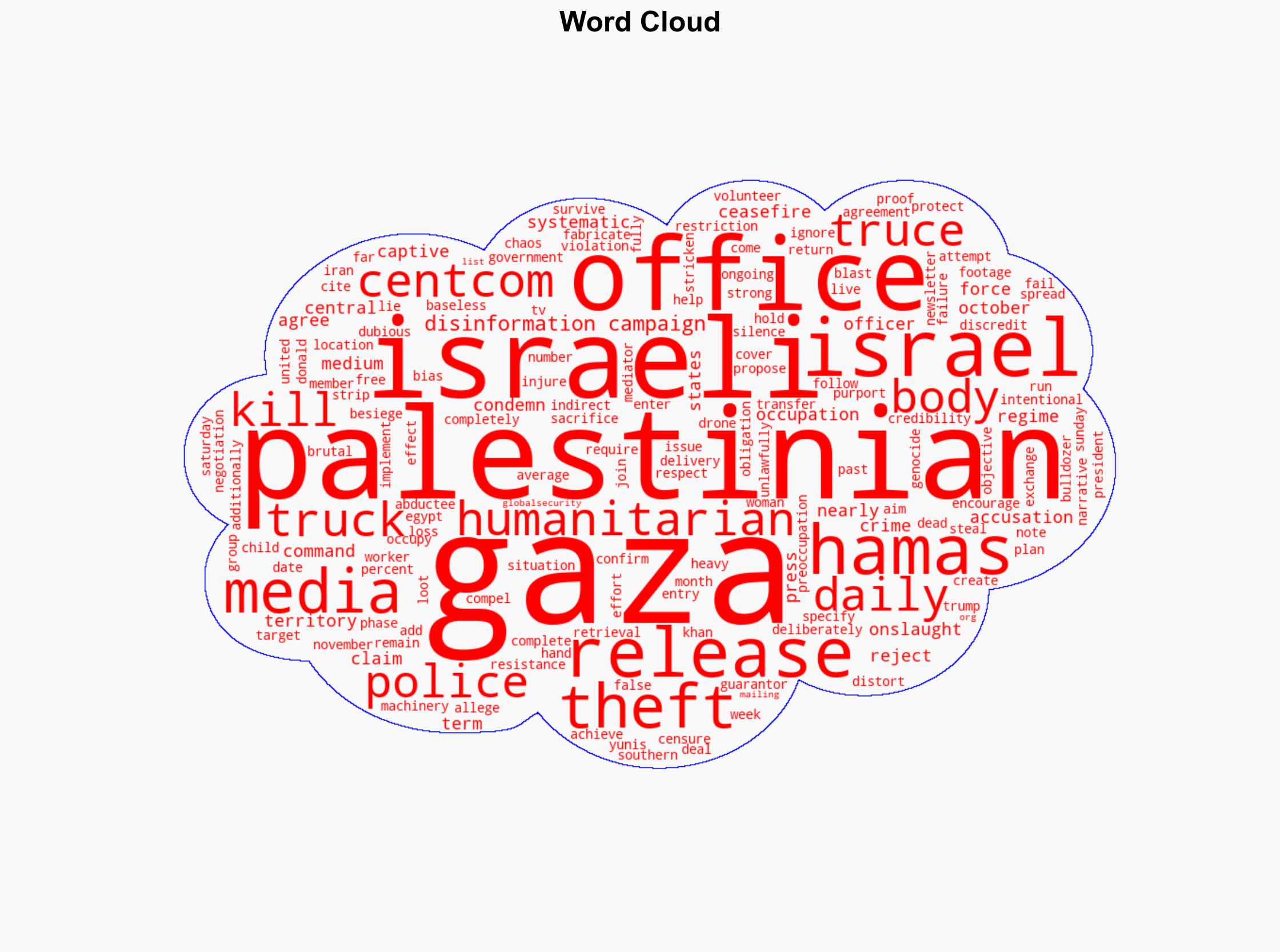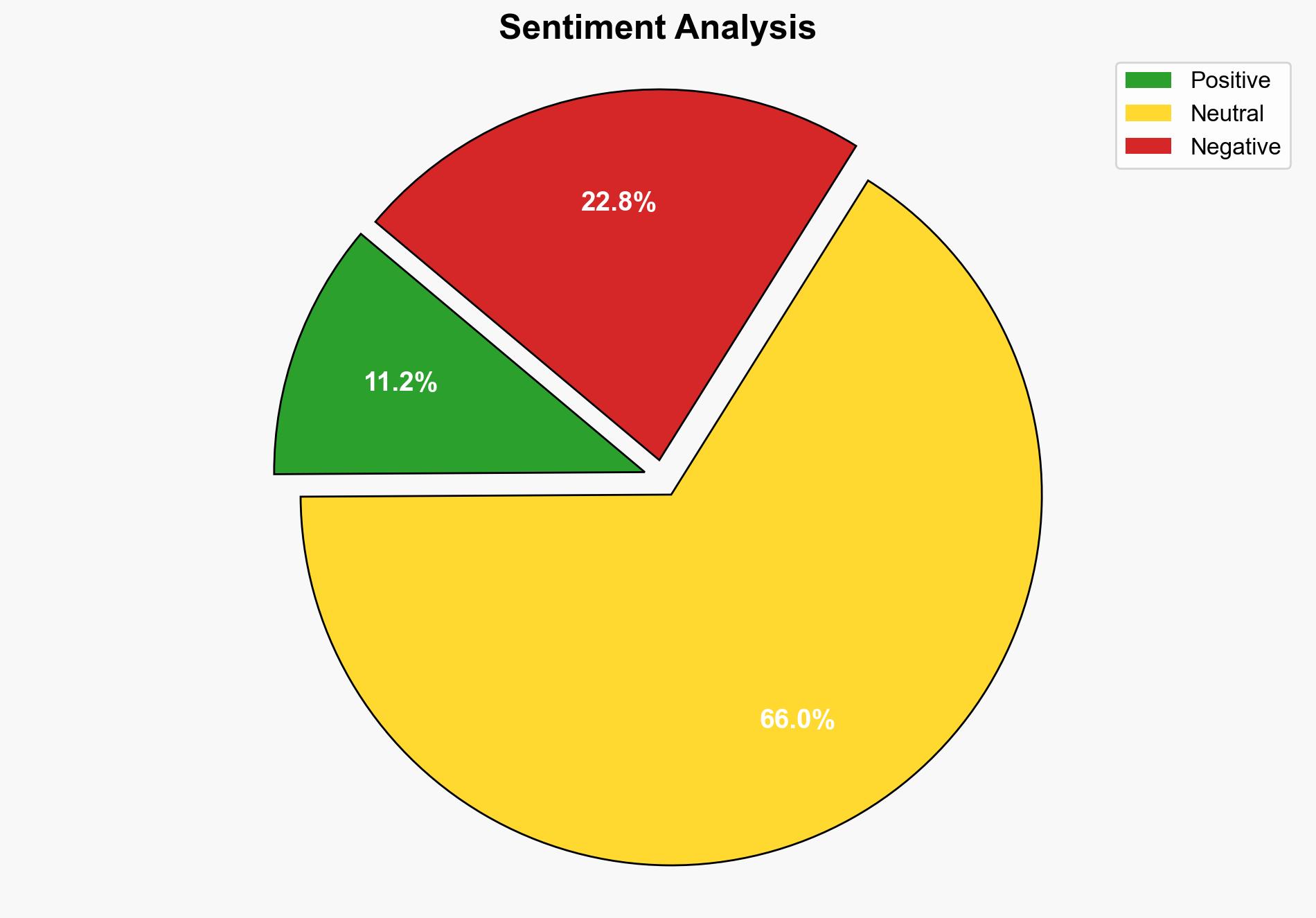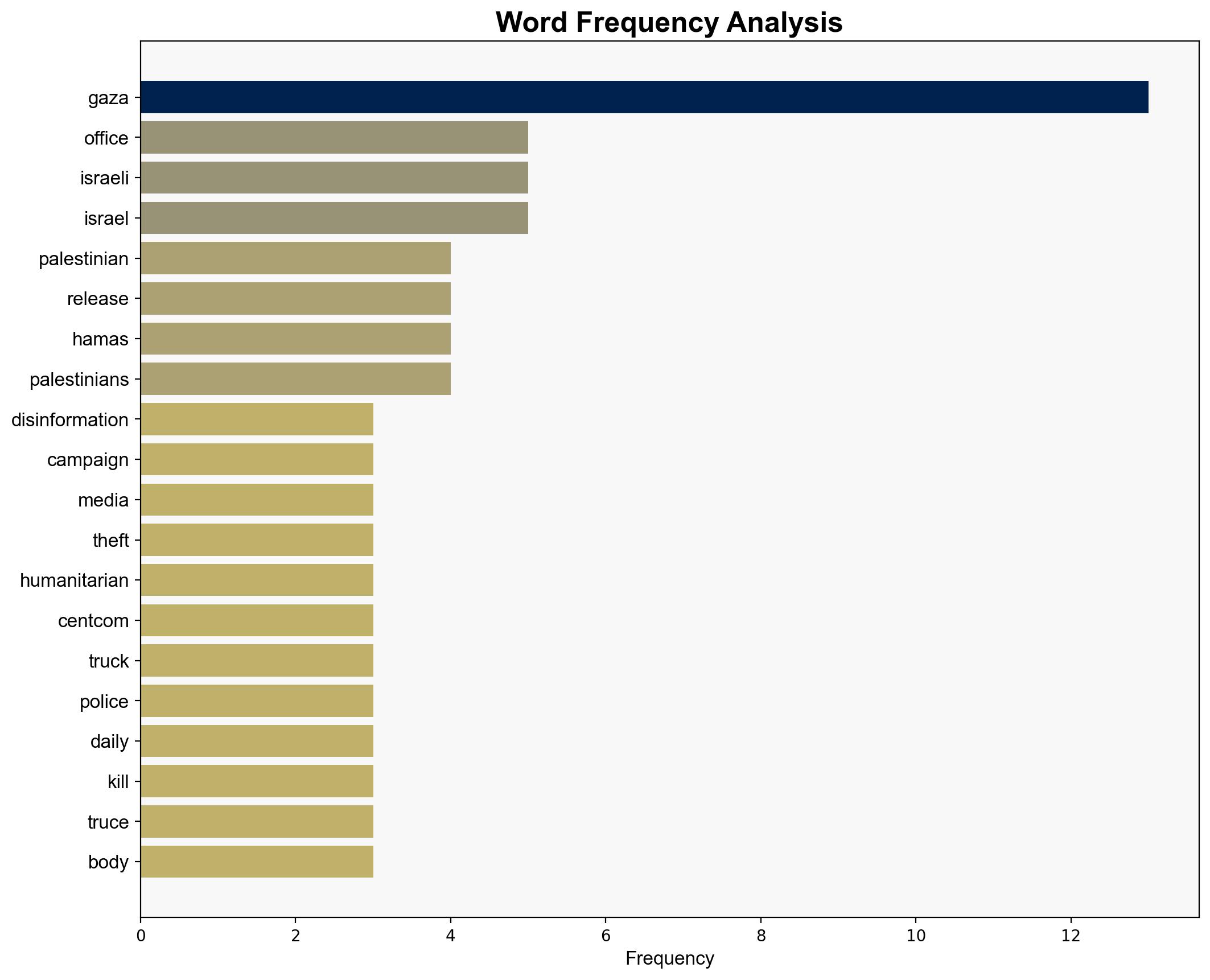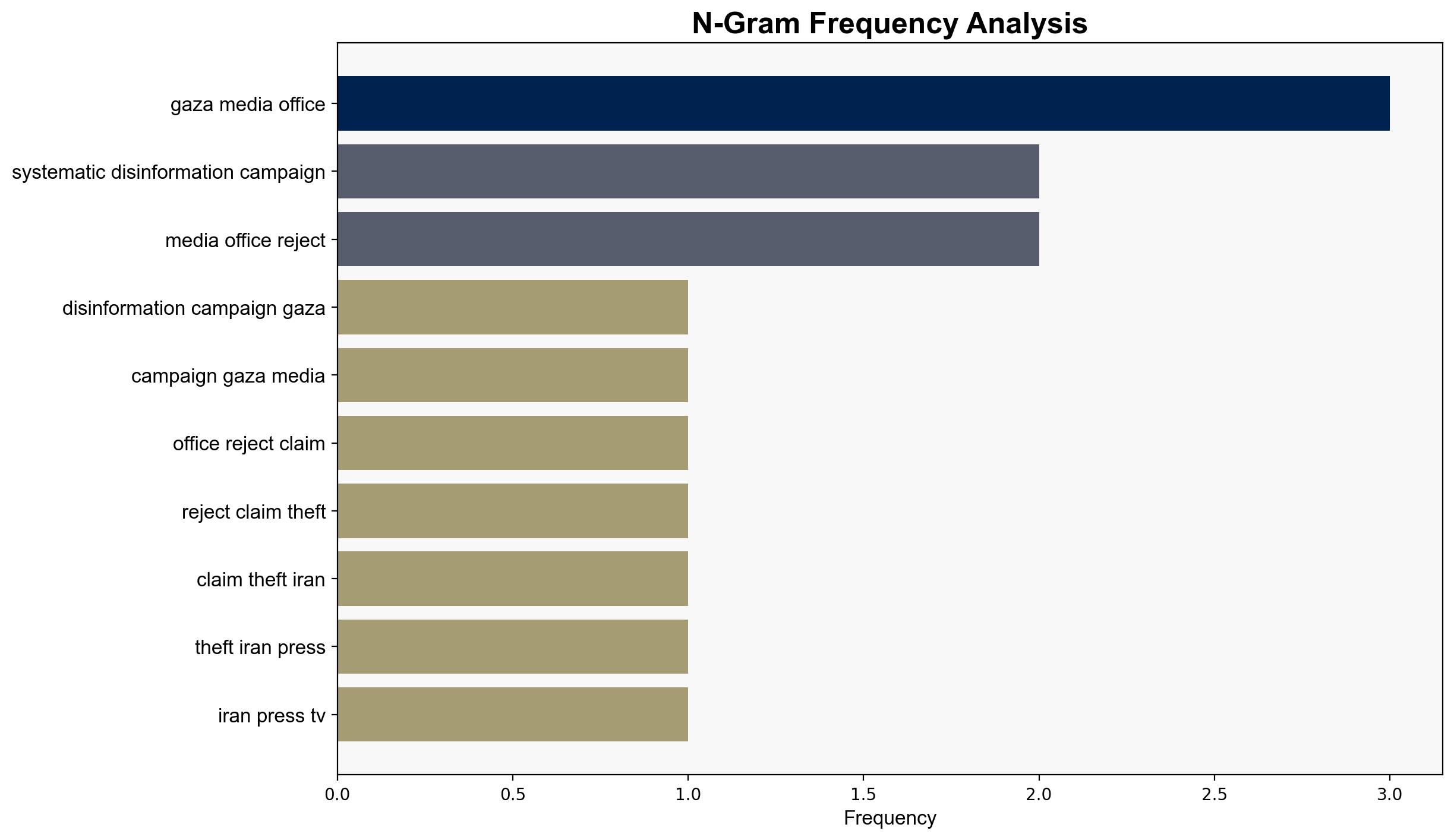‘Systematic disinformation campaign’ Gaza Media Office rejects US claims on aid theft – Globalsecurity.org
Published on: 2025-11-03
Intelligence Report: ‘Systematic disinformation campaign’ Gaza Media Office rejects US claims on aid theft – Globalsecurity.org
1. BLUF (Bottom Line Up Front)
The most supported hypothesis is that the Gaza Media Office’s rejection of US claims is part of a broader narrative to counter perceived misinformation and maintain its legitimacy among local and international audiences. Confidence in this assessment is moderate due to the lack of independent verification of claims from both sides. Recommended action includes increasing intelligence collection efforts to verify claims and counterclaims, and engaging diplomatic channels to de-escalate tensions.
2. Competing Hypotheses
1. **Hypothesis A**: The US claims of aid theft by Hamas are accurate, and the Gaza Media Office is engaging in a disinformation campaign to protect its image and operations.
2. **Hypothesis B**: The Gaza Media Office’s rejection of the US claims is valid, and the accusations are part of a systematic disinformation campaign by the US to undermine Hamas and justify further actions in the region.
Using Analysis of Competing Hypotheses (ACH), Hypothesis B is better supported due to the lack of specific evidence provided by CENTCOM and the historical context of information warfare in the region.
3. Key Assumptions and Red Flags
– **Assumptions**: It is assumed that both the US and Gaza Media Office have motives to manipulate narratives for strategic gain. The assumption that CENTCOM’s footage is conclusive evidence is questionable without independent verification.
– **Red Flags**: The absence of specific details such as dates and locations in CENTCOM’s claims raises credibility concerns. The Gaza Media Office’s narrative may also be biased due to its vested interests.
4. Implications and Strategic Risks
The ongoing narrative battle could escalate tensions, potentially leading to increased violence and destabilization in the region. This could impact humanitarian aid delivery and exacerbate the humanitarian crisis. There is also a risk of cyber and information warfare intensifying, affecting regional stability and international relations.
5. Recommendations and Outlook
- Enhance intelligence-gathering capabilities to independently verify claims and counterclaims.
- Engage in diplomatic efforts to mediate between conflicting parties and reduce tensions.
- Scenario Projections:
- Best Case: De-escalation through successful diplomatic intervention and verified information sharing.
- Worst Case: Escalation into broader conflict, further humanitarian crisis, and regional instability.
- Most Likely: Continued narrative conflict with sporadic escalations and ongoing humanitarian challenges.
6. Key Individuals and Entities
– Gaza Media Office
– CENTCOM
– Hamas
– Israeli Forces
7. Thematic Tags
national security threats, cybersecurity, counter-terrorism, regional focus




